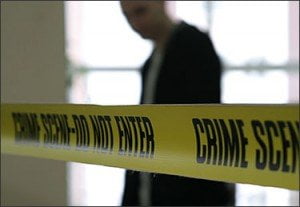
Involuntary manslaughter – California 192(b) PC
Involuntary manslaughter is defined by California Penal Code section 192(b), which lays out the criminal elements and penalties for this offense. Manslaughter differs from murder in that murder requires the perpetrator to have thoughts of malice, while manslaughter does not. Further, manslaughter can be involuntary or voluntary, while murder is only voluntary in nature.
ELEMENTS OF THE CRIME OF INVOLUNTARY MANSLAUGHTER
To obtain a successful conviction under 192(b) PC, the prosecution must prove beyond a reasonable doubt that:
The defendant committed a California misdemeanor; OR
A California infraction; OR
A California felony not considered inherently dangerous; OR
A lawful act done in an unlawful manner; AND
The defendant committed the act or crime with criminal negligence; AND
The defendant’s actions caused another’s death.
Upon initial reading, the first four elements may seem somewhat confusing. A simpler way to think of it is the offense of involuntary manslaughter can occur only if the defendant has done something wrong. The exception is, if the victim is killed during the commission of a felony that is inherently dangerous, then the defendant can be charged with murder.
An unforeseeable freak accident does not satisfy these elements. The accused must have either committed an underlying infraction or criminal offense. And even then, they must be found criminally negligent, which is more than simple inattention, carelessness, or mistaken judgment. Instead, criminal negligence occurs when:
A person acts in a manner that is reckless and creates a high risk of great bodily injury or death; AND
A reasonable person in the same situation would have known that acting in such a way would create such a risk.
For example, if a mother left her children home while running to the store and a hot water heater starts emitting carbon monoxide and kills one of her children, she would not be guilty of involuntary manslaughter. The risk of the water heater suddenly releasing carbon monoxide was unknown. A reasonable person in the same circumstances would not have considered death by carbon monoxide poisoning a foreseeable consequence of the mother’s actions.
In contrast, if the mother left the home with burning candles placed near billowing draperies, and the open flame started a blaze, killing her child, she could potentially be found guilty of involuntary manslaughter. A reasonable person would have known that leaving the home while candles are burning creates a high risk of injury or death to an unsupervised child.
The final element the prosecution must prove is that the defendant’s actions caused another person’s death. An act is considered to have caused another’s death if it was the natural, direct, and probable outcome of the act in question, and the death wouldn’t have happened but for that act. Said more plainly, a reasonable person would realize that death was a likely result of the act in question. Going back to the example of carbon monoxide poisoning, there is a strong possibility the mother would have also died if she had not left the home. Therefore, her absence from the home is not the cause of her child’s death; it is only what saved her own life.
INVOLUNTARY MANSLAUGHTER BASED ON LEGAL DUTY
Involuntary manslaughter based on legal duty is another type of involuntary manslaughter which deserves mention. This type of involuntary manslaughter occurs when:
The defendant had a legal duty to the victim; AND
The defendant failed to perform that legal duty; AND
The failure to perform that legal duty was criminally negligent; AND
The negligence behind the failure to perform that legal duty caused the victim’s death.
Relationships that establish a legal duty include:
Parent-child.
Paid caretaker to person(s) under their care.
One person who has assumed responsibility for another person.
The concept of legal duty is an issue decided by a judge instead of a jury should the case reach trial.
CRIMINAL PENALTIES FOR VIOLATIONS OF 192(B) PC
Violation of 192(b) PC is a felony offense. A defendant convicted of involuntary manslaughter may be sentenced to any or all:
Two to four years in jail.
Felony probation.
A fine of up to $10,000.
If the defendant accidentally killed someone with a dangerous or deadly weapon or a firearm and is found guilty under 192(b) PC, the defendant will receive a strike under California’s three strikes law.
A defendant who is found guilty of involuntary manslaughter may also be subject to a civil lawsuit brought by the victim’s family, resulting in a potentially large monetary judgment.
RELATED OFFENSES
Several other offenses are closely related to 192(b) PC, including:
187 PC – Murder
192(a) PC – Voluntary manslaughter
192(c) PC – Vehicular manslaughter
LEGAL DEFENSES TO A CHARGE OF INVOLUNTARY MANSLAUGHTER
If a person dies under suspicious circumstances, law enforcement and the public naturally want to hold someone responsible and accountable for the death. As a result, people may jump to conclusions, leaving innocent people to defend themselves against erroneous charges. Seeking the services of a skilled and knowledgeable criminal defense attorney is critical. Only a qualified attorney can provide accurate legal advice which is appropriate to a defendant’s unique situation.
Possible legal defenses to prosecution under 192(b) PC include, but are not limited to:
Acting in self-defense or defense of others, with a reasonable belief that potential harm was imminent, that deadly force was the only viable defense, and that the amount of force used was not excessive under the circumstances.
The killing was accidental, not a result of criminal negligence, and occurred during otherwise lawful activity.
False accusations or mistaken identity.
Insufficient or unlawfully obtained evidence.
Do you have questions about a serious felony offense, such as involuntary manslaughter? Contact Long Beach criminal defense attorney Don Hammond. Mr. Hammond represents clients in Long Beach and the greater Los Angeles area, including Lakewood, Signal Hill, Carson, Compton, Gardena, Inglewood, Wilmington, and surrounding communities.









